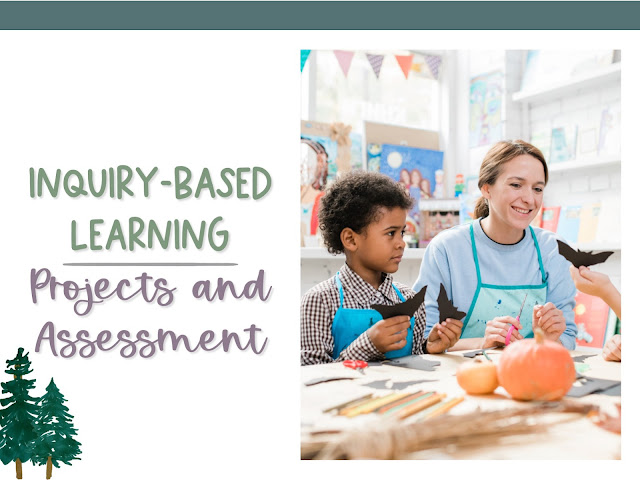Inquiry-Based Learning Projects and Assessment
Hey, y’all! I’m back for more tips and ideas for your next inquiry-based learning unit! Last week, we talked about how to build a unit and structure your lessons for IBL. This week, we’ll be looking at ways we can assess students through inquiry-based learning projects. This is a fun one, so let’s jump right in.When you’re planning any big unit, you plan backwards. Begin with the end in mind. So, if your goal is for students to build a structure to protect someone from the elements and/or to withstand an earthquake, you begin teaching about what the elements and earthquakes can do to different structures. You learn about different types of earthquakes, different severe weather events, and ways engineers have designed buildings so that they can withstand these events. They you tell the kids, “Your turn.”
The same holds true for all your inquiry-based learning units. (By the way, the example above is a perfect example of a guided inquiry-based learning project.)
In first grade, reading and writing are our number one goals. We practice it ALL DAY LONG. Everyday. All the time. So usually, our final projects have to do with some kind of written display of what we learned—we create books, diagrams, posters, etc. with words to express what we learned.
In 6th grade English, the kids created slide decks of their learning. In the science class across the hall, they had build a structure or machine to illustrate their understanding and be able to explain why it works or what they could improve on to make it work better.
So long story short, what do you want students to be able to accomplish at the end of the unit? Think beyond, “I want them to know and understand…” What do you want them to do with the information.
For example, you’re going to do a deep dive into government. You’ve decided you’re not just going to look at the way our government is setup but also the way other countries have setup their governments. For a final project, you have students decide on what are the best parts of each type of government and create their own master government. (I would also require them to create some kind of checks and balances so you don’t have a kid go full dictator on you, but that’s just me.)
Or you’re learning about plant life cycles and needs. You’ve gone to your school’s garden. You’ve planted bean plants or marigolds or sunflowers. But your students know different plants need different things, like more or less sun and water, more space, etc. So, you have them plan their own garden taking these things into consideration. They can even make a scaled model using Wikki Sticks or something similar.
Maybe you want to keep it simple and, at the end of a science lab, if students can recreate the desired reaction, that is their project and final assessment of learning. Bonus points for being able to explain why the reaction occurred at the molecular level.
I love coming up with these final inquiry-based learning projects for assessment of student learning. If you’re planning your unit and you’re not sure where you want them to be in the end or how you can assess it authentically, shoot me an email and we’ll work through it together.
I hope this series is helping you put all the pieces together for your inquiry-based and phenomenon-based learning units. Planning a big unit can be challenging at first but you’re doing great!
Over the next few weeks, we’ll be looking at the benefits of inquiry and phenomenon-based learning, different activities you can do in the classroom to spark interest and engagement, and examples of inquiry in different subjects and grade levels. This should help not only connect everything for you but also inspire you to try some new ideas and strategies. I look forward to it!
Have a great week and I’ll talk to you soon.
Stay cozy,



No comments
Post a Comment